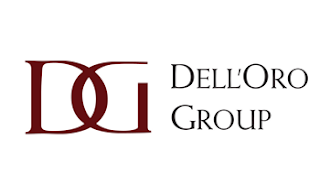Frontier is introducing Network-as-a-Service (NaaS) powered by Nile's AI-driven platform. The service provides enterprises with scalable wired and wireless networks via the cloud on a subscription basis with no up-front costs. The Nile NaaS platform has built-in security features and uses AI to make automatic upgrades and proactively detect and resolve service issues, ensuring better network performance.
Frontier delivers high-speed, reliable fiber connectivity to businesses, including healthcare providers, universities and state and local governments, in 25 states.
“We’re thrilled to partner with Frontier to deliver the next stage in the evolution of the enterprise network,” said Pankaj Patel, Nile’s CEO and co-founder. “The Nile Access Service is ideal for service providers like Frontier, as it provides a complete wired and wireless Local Area Network (LAN) offering that enables them to deepen their partnerships with their enterprise customers but doesn’t add to their operational burden. It also eliminates the need for network lifecycle management for Frontier and its customers, enabling everyone involved to focus on mission-critical applications and services the enterprise network was built to support.”
In August 2023, Nile, a start-up based in San Jose, California, closed a $175 million Series C investment round, bringing its total funding to date to $300 million.
Nile, which emerged from stealth mode less than a year ago, offers a network-as-a-service (NaaS) solution designed to deliver a more secure wired and wireless service through the ex Nile’s service incorporates Campus Zero Trust Network Access (ZTNA) principles by design, and automates network access control (NAC) mechanisms that traditionally required significant manual effort to provision and maintain.The latest funding round was co-led by March Capital and Sanabil Investments, with strategic participation from solutions by stc, Prosperity7, Liberty Global Ventures, and stc CIF (Corporate Investment Fund), and contribution from 8VC, Geodesic Capital, U First Capital, and Valor Equity Partners.
Nile was founded in 2018 by Pankaj Patel, formerly former EVP and Chief Development Officer at Cisco, and Suresh Katukam , who were joined by John Chambers and Sri Hosakote. John Chambers is the former Executive Chairman and CEO at Cisco.
The company says this round of financing will further its mission to eliminate the operational complexities plaguing enterprise networks in their ability to support cloud-born enterprise IT solutions, while also delivering the highest levels of integrated defenses to protect both wired and wireless connectivity from cyber attacks.
https://youtu.be/OSJdIeqU8AcWhat's the story with Nile? Is there room for another networking start-up? Pankaj Patel, CEO and co-Founder of Nile, discusses:
- Nile's mission to remove human dependency from the management of the network, similar to what cloud computing has done for storage and computing.
- Nile's goals to transform the traditional network, often associated with security risks, into a security force multiplier with zero-trust access that requires no manual network operations.
- How Nile is committed to delivering outcome-based SLAs that matter most to customers on availability, capacity, and coverage, all through an insane level of automation and heavy use of AI/ML-driven automation and data analytics.


























